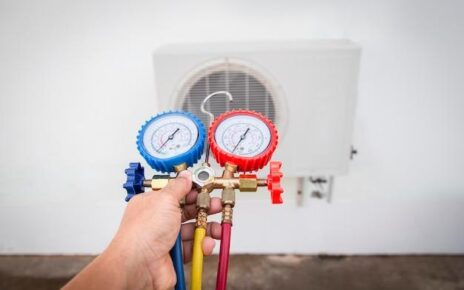Aircon compressor cleaning is not optional amidst a humid and high-demand climate; it’s essential. Whether in high-rise HDB flats or commercial office buildings, a neglected compressor leads to decreased cooling efficiency, higher electricity bills, and potential system failure. Yet, how cleaning is approached differs significantly between commercial and residential air conditioning systems.
Discover the core differences in requirements, expectations, and methods between the two, and learn the role of an air conditioner contractor in Singapore in delivering professional-grade maintenance.
Scale and Complexity of the System
Air conditioning systems are typically split-unit types in residential homes, with one outdoor compressor per set of indoor units. These systems are compact, relatively easy to access, and usually serve a limited number of rooms. Cleaning is straightforward but still critical, especially in high-use households.
In contrast, commercial setups often involve multi-split systems, centralised chillers, or VRV/VRF systems. Compressors are housed in designated equipment areas or on rooftops and are responsible for cooling entire floors or buildings. Cleaning such compressors requires industrial-grade tools, confined space access protocols, and more manpower. In short, scale dictates the use of advanced cleaning techniques and stricter safety compliance.
Frequency and Intensity of Use
Residential air conditioning units typically operate during evenings and weekends, with some exceptions for home offices. Due to this, aircon compressor cleaning may be scheduled every 6 to 12 months, depending on occupancy and brand recommendations.
On the other hand, commercial air conditioning runs continuously during business hours—often up to 12 hours a day or more. Compressors work harder and accumulate dust, oil residue, and moisture more rapidly. This instance requires more frequent inspections and quarterly or even bi-monthly cleaning, depending on building load and occupancy levels.
Cleaning Methods and Equipment Used
The cleaning process for residential systems is often manual: the technician removes the casing, clears debris, vacuums the coils, and uses chemical sprays when needed. Portable compressors or pressure washers are used cautiously due to proximity to living areas.
Meanwhile, in commercial settings, contractors deploy industrial vacuum systems, high-pressure jet sprays, or coil cleaning machines. Since commercial compressors are often linked to chilled water systems or central air handling units (AHUs), the cleaning also involves flushing refrigerant lines, degreasing fins, and inspecting electrical terminals—all requiring specialised skillsets and multiple technicians. This instance is where hiring a reliable air conditioner contractor becomes vital—technical failure or contamination can impact operations and violate building compliance standards.
Downtime and Access Constraints
Residential jobs are scheduled flexibly, often on weekends or weekdays with household supervision. Access to the compressor is usually on the service balcony or external wall, making logistics straightforward.
Commercial compressor cleaning requires scheduling during non-peak hours or building shutdowns, often late nights or weekends. Access is limited to authorised personnel and often involves lifting gear, scaffolding, or entry permits, especially in high-rise buildings or data centres. An experienced contractor will manage these access and compliance requirements professionally.
Cost and Contracting Models
The cost of aircon compressor cleaning in residential settings is relatively affordable, ranging from S$30 to S$80 per unit, depending on the service provider. Most households opt for annual maintenance packages.
In contrast, commercial buildings usually operate on yearly or multi-year maintenance contracts. Pricing is based on BTU capacity, number of compressors, cleaning frequency, and whether emergency call-outs are included. A seasoned air conditioner contractor will provide tailored packages that factor in equipment type, warranty conditions, and building management expectations.
Conclusion
While the objective of aircon compressor cleaning is consistent—ensuring efficient cooling and system longevity—the execution differs significantly between commercial and residential environments. Residential settings prioritise convenience and cost, while commercial buildings demand scale, speed, and technical compliance. Engaging a professional air conditioner contractor ensures that the right approach is used for the appropriate context, minimising risk, reducing energy consumption, and avoiding costly system breakdowns.
Contact Airple and let us handle your residential or commercial compressor cleaning.





